
Make sure Notice of Privacy Practices are updated by Feb. 16.

Rachel V. Rose, JD, MBA, advises clients on compliance, transactions, government administrative actions, and litigation involving healthcare, cybersecurity, corporate and securities law, as well as False Claims Act and Dodd-Frank whistleblower cases. She also teaches bioethics at Baylor College of Medicine in Houston. Rachel can be reached through her website, www.rvrose.com.

Make sure Notice of Privacy Practices are updated by Feb. 16.

The False Claims Act sees record settlements and lawsuits last year.

Explore the nuances between "split/shared" and "incident to" billing in health care, ensuring compliance with the latest CY 2026 Physician Fee Schedule.

A recent DOJ settlement highlights the risks of manipulating electronic health records for Medicare billing.

Stay vigilant this holiday season against cyberattacks with these tips on safe shopping, recognizing scams and protecting your information.

Understanding legal expenses is crucial for health care practices, covering initial and ongoing costs ensures compliance and mitigates risks.

Prosecutors tackle fraud in health care, highlighting the importance of compliance programs and anti-retaliation measures to protect whistleblowers.

Texas med spas are under new scrutiny. “Jenifer’s Law” tightens rules for IV infusions and cosmetic procedures, requiring proper licensing and physician supervision to protect patients and keep practices compliant.

A recent court ruling affirms CMS's authority in Medicare Advantage ratings, highlighting compliance challenges for providers and the importance of interpreter availability.

Explore the impact of AI in healthcare inspections, highlighting risks, ethical concerns, and compliance strategies for safe implementation.

Texas updates non-compete laws for healthcare professionals, while the FTC investigates restrictive employment agreements, urging compliance and fairness in contracts.

HHS prioritizes patient-centric healthcare, enhancing interoperability and access to health information while addressing privacy concerns and technology disparities.

A new Texas law, S.B. 1188, takes effect Sept. 1 setting rules for health data security, U.S.-based storage and use of artificial intelligence in medicine. Violations carry civil penalties.

The Ninth Circuit's ruling on EKRA reshapes compliance for healthcare entities, emphasizing the importance of understanding kickback laws and their implications.

Explore the intersection of HIPAA violations and the False Claims Act, highlighting compliance strategies to mitigate legal risks in healthcare.

Recent court rulings reshape reproductive health care privacy and regulations, emphasizing the need for updated HIPAA policies and awareness of state laws.
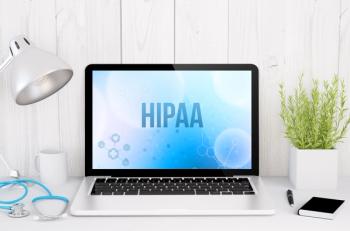
Understanding HIPAA's Privacy Rule clarifies how incidental disclosures in health care settings are permissible, ensuring patient privacy while facilitating essential communications.

The Open Payments Program reveals critical compliance issues in healthcare, highlighting recent legal cases and the importance of accurate financial reporting.

Practices must prepare for stricter fraud reporting and compliance as the DOJ Corporate Whistleblower Awards Pilot Program and bipartisan AI Whistleblower Protection Act expand protections beyond the False Claims Act.

Practice administrators seeking federal grants or contracts must look beyond HIPAA, completing SAM registration and adopting FAR 52.204‑21’s 15 essential cybersecurity controls to safeguard PHI, PII, FCI and CUI.

Two class-action lawsuits targeting the University of Maryland Medical Center and the University of Kansas Health System for years-long cyberstalking and unauthorized access to protected health information spotlight massive HIPAA risk-analysis failures and underscore the urgent need for stronger health care cybersecurity safeguards.

As biometric technologies expand in health care and consumer surveillance, regulators are cracking down on companies that misuse sensitive data — with HIPAA, FTC orders and billion-dollar state settlements setting the tone.

Think HIPAA is the only law that matters for patient data privacy? Think again —mapping the complex legal web every physician and practice manager must understand to truly stay compliant.

Don't make the same mistakes as this practice.

Medicaid is on the chopping block, but that doesn't mean the end of indigent care.

Recent legislative and regulatory actions tied to generative artificial intelligence.
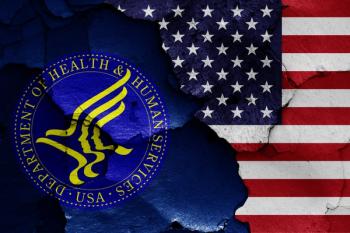
The long anticipated HIPAA Security Rule Notice of Proposed Rule Making strives to strengthen electronic protected health information cybersecurity.
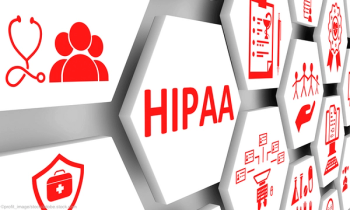
“Cybersecurity is patient safety” and the continued downstream implications for the use of PHI for other unlawful purposes including insurance fraud and predatory practices targeted at minors are significant.

Gratitude, if it is genuine, can organically lead to greater reimbursement.

An effective compliance program can and does mitigate liability, so it's important to stay abreast of regulatory changes.

Published: July 15th 2021 | Updated:

Published: November 5th 2020 | Updated:

Published: April 29th 2021 | Updated:
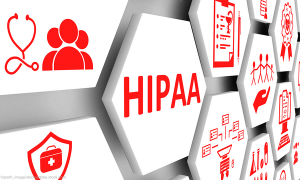
Published: December 28th 2020 | Updated:

Published: March 11th 2021 | Updated:
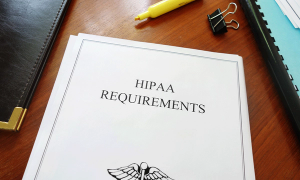
Published: August 27th 2020 | Updated: